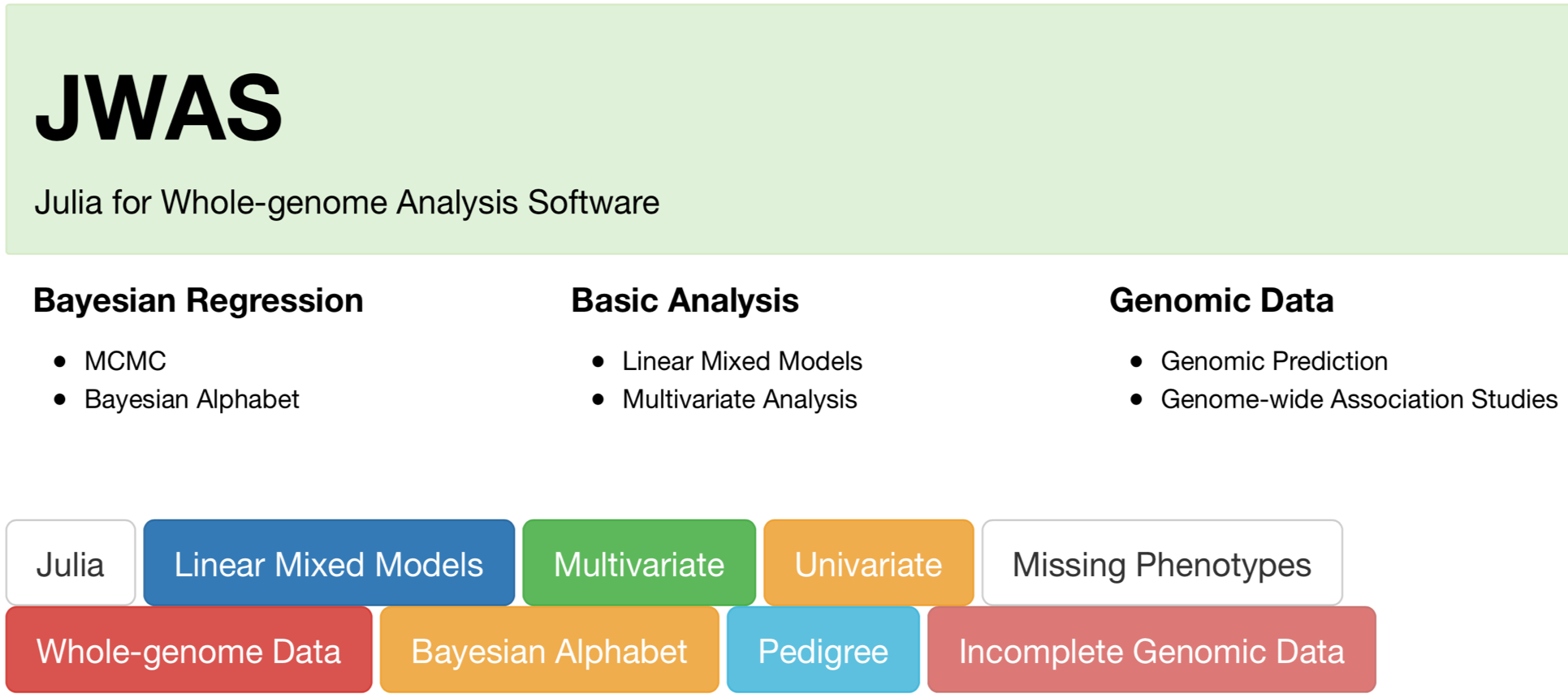
JWAS is a well-documented software platform based on Julia and an interactive Jupyter notebook for analyses of general univariate and multivariate Bayesian mixed effects models. These models are especially useful for, but not limited to, routine single-trait and multi-trait genomic prediction and genome-wide association studies using either complete or incomplete genomic data ("single-step" methods). Currently, JWAS provides broad scope of analyses, e.g., a wide collection of Bayesian methods for whole-genome analyses, including shrinkage estimation and variable selection methods. The features of JWAS include:
Univariate (single-trait) analysis
Multivariate (multi-trait) analysis
No limitations on fixed effects (e.g., herd, year,age,sex)
Random effects other than markers (e.g., litter, pen)
Random effects using pedigree information
Additive genetic effects
Maternal effects
Random permanent environmental effects
Correlated residuals
Correlated random effects
Unknown (or known) variance components
Use of genomic information
Complete genomic data
Incomplete genomic data (singe-step)
Supporting and Citing
We hope the friendly user interface and fast computing speed of JWAS will provide power and convenience for users in both industry and academia to analyze large datasets. Further, as a well-documented open-source software tool, we hope JWAS will also be used by a group of active community members, who will contribute to the source code and help maintain the project. Junior scientists can understand and learn the methodologies for whole-genome analyses by using JWAS and reading the tutorials and source code.
If you would like to help support JWAS, please star the repository on the upper right corner here as such statistic will help to demonstrate the active involvement of the community. If you use JWAS for your research, teaching, or other activities, we would be grateful if you could cite our work following this citation guideline.
The trouble, the error and the new feature
If you have trouble using JWAS, want new features or find errors in JWAS, please open an issue or contact <qtlcheng@ucdavis.edu>.
Tutorials
Theory
Manual
- Get Started
- Workflow
- Available Models
- Get Data Ready
- Step 1: Load Packages
- Step 2: Read data
- Step 3: Build Model Equations
- Step 4: Set Factors or Covariate
- Step 5: Set Random or Fixed Effects
- Step 6: Use Genomic Information
- Step 7: Run Bayesian Analysis
- Public functions
- Internal functions